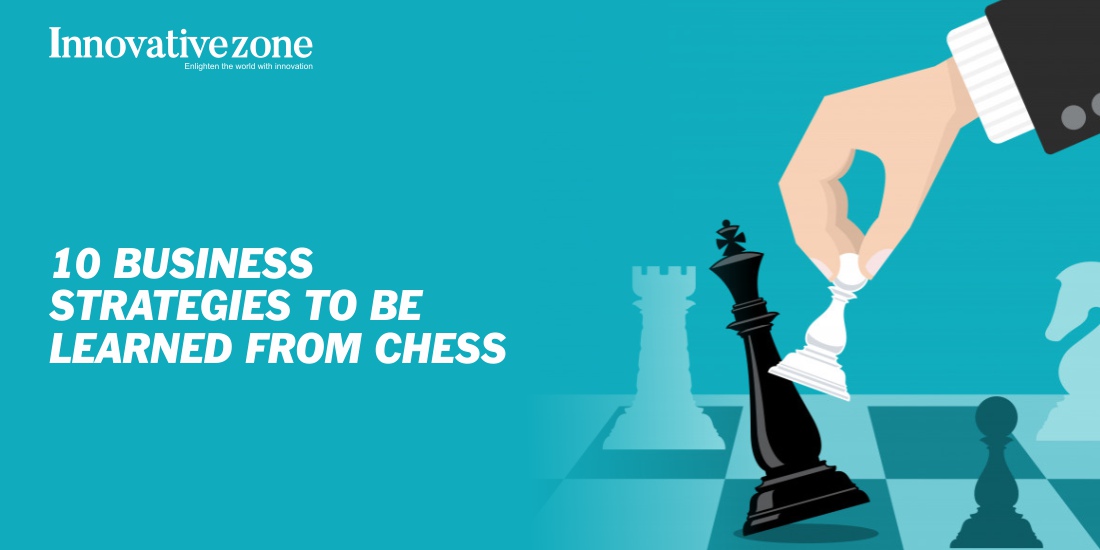10 Business Strategies To Be Learned From Chess
Do you enjoy playing chess? Have you heard the name “Vishwanathan Anand”? Do you know that chess has its roots in India, where it was traditionally known as chaturanga? After all, there’s a reason it’s called “the game of kings and queens.” Chess improves your IQ, your faith, and your problem-solving abilities. Teaches foresight and preparation. Improves your focus by working all sides of your brain. Boosts your memory, Boosts your imagination. These advantages are self-evident when it comes to running a successful company, particularly if you operate in a highly competitive market.
It’s no surprise that top CEOs (Sundar Pichai, Malika Sadani), world leaders (Narendra Modi, Barack Obama), and even prominent TV actors have a Chessboard in their homes or offices (Aamir Khan, Hrithik Roshan, Manushi Chhillar).
What does chess have to do with running a business?
Both offensive and defensive play requires different tactics, and the best chess players should be familiar with both. You must be able to effectively handle defensive and offensive roles in your industry as a businessperson.
If you’ve ever seen anyone play chess, or if you’ve ever played yourself, you’ll note that the opponents patiently wait their turn, research the board, predict their next step, and mentally run through different scenarios. This is not dissimilar to what is available in the corporate world.
SWOT analysis is used in both cases. Recognizing your Strengths, Weaknesses, Opportunities, and Threats, to put it another way. There is an opening, a middle game, and an endgame in chess. This is comparable to the business cycle (expansion, peak, contraction, and trough).
What are the lessons that chess teaches?
#1 MAKE SOME STEPS AHEAD OF TIME.
Chess players prepare their moves and think of possible counter-moves. Players with a lot of experience will anticipate movements several turns ahead of time. That is how they are able to outsmart their adversary.
As a company owner, you would do this. A strong forecast is vital to a company’s success.
You can also devise contingency measures in case of unforeseen circumstances. “We’ll work it out when we get there” might be a risky gamble you can’t afford to make.
#2 RECOGNIZE THE PLAYERS
If you want to succeed in business, you need to consider your competition just as you do in chess.
Chess players spend a lot of time trying to work out how their rivals think. They’ll be able to devise countermeasures that will enable them to stay ahead of the game, withstand an assault, and counterattack.
That is precisely what you would do as a business owner. Find out what the rivals are up to. What are their names? What do they have to sell customers that you don’t? How do you improve the quality of your goods, services, and marketing efforts? These are just a few of the crucial questions you should be asking yourself.
#3 BE AWARE OF THE PIECES’ WORTH.
Every chess piece has a different meaning. Knowing them will help you make better choices on where to position them around the board.
Similarly, knowing the worth of your staff, clients, and partners can make it easier to make informed decisions about work assignments, client targeting, and other matters.
#4 DON’T RUSH INTO A DECISION; THERE MIGHT BE A BETTER OPTION.
If they’ve made a successful pass, novice players quit looking for another. They overlook the possibility that there is a better option.
In the company, you must ensure that your decisions are based on a detailed collection of data from the entire landscape. Don’t go for the first choice that appeals to you. Think of all of your choices.
#5 KNOW THE RULES.
You must first learn the rules before you can participate. That’s how it works in the industry, too.
You’ll almost definitely fail if you leap in without first knowing the nuances of how things work, such as customer demand, business legislation, pricing strategies, and so on. As a result, it’s critical to start small and gradually extend your scope as you gain experience.
#6 PLAY THE BOARD RATHER THAN THE PLAN.
When you play chess, your adversary is actively devising ways to thwart your plans.
While making plans is important, knowing when to abandon them or make changes is even more important.
As you are implementing your business strategy, your rivals are implementing their own in order to obtain a greater share of the market. Your objective should not be to adhere to a strict schedule. Your ability to adapt quickly and efficiently to fight what your rivals are doing decides whether you succeed or fail.
#7 PLAY FOR THE WIN
In chess, the ultimate target must be held in mind. You won’t win if you play emotionally or give up at the first sign of difficulty. You must be willing to make difficult decisions.
Some people like to play it safe. They cling to their possessions and refuse to make compromises. That’s how it works in the industry, too. You must retain versatility to achieve your objectives. When it comes to product combinations, management strategies, or marketing campaigns, know when to make changes.
Keep your gaze fixed on the big picture.
#8 KEEP TRACK OF YOUR MONEY.
Learn how to use your money to win.
This is true in business when it comes to money. You’re finished if you run out of money. Make sure you’re not going overboard with your expenses. Any cost you incur should result in a benefit. Nothing should be thrown away. You must also ensure that you are collecting funds in an acceptable manner. Never let your expenses outstrip your profits.
#9 KEEP A CLOSE EYE ON THE TIME.
In chess, it’s a popular saying that “time is stuff.”
Not only must you manage your pieces, but you must also manage your time. The games in a tournament are timed, so you only have a certain amount of time to make a number of moves.
This is why it is important to plan ahead of time. A wise entrepreneur can make decisions that seem to be made quickly but are really the product of months of research and planning.
#10 BE WILLING TO MAKE SACRIFICES
In chess, you learn to make the requisite sacrifices in order to gain an advantage or catch the king (Checkmate!). There are times when you must give up a piece in order to obtain an advantage in the future.
You must strike this balance as an entrepreneur. That’s what it means to think beyond the box. It’s also important for innovation and great accomplishments, and it could mean the difference between success and failure. It doesn’t matter if it’s one-of-a-kind marketing strategies, fresh and innovative goods, and services, or other intuitive products.
The bottom line
You must be competitive if you want to succeed in business. This is precisely the game of chess.
Also Read:- Sundar Pichai Success Story








